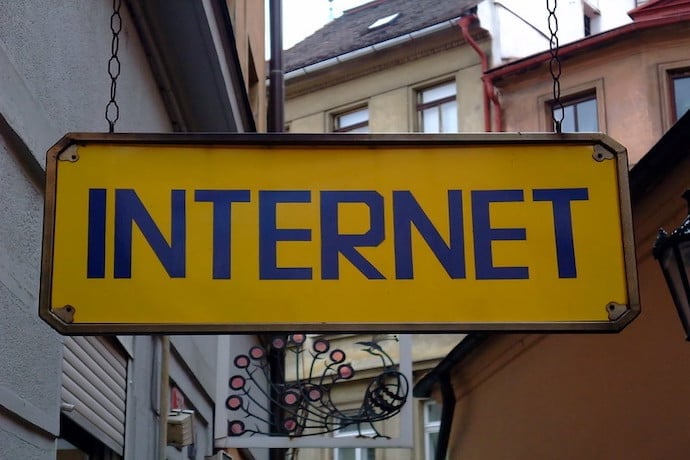Last issue, I interviewed solderpunk, the creator of the Gemini protocol—an alternative to the web that’s focused on privacy. We talked about the importance of privacy and the ability to do what you want on the internet. We also talked a little bit about the concept of the small internet, people building online communities apart from the crowded and corporate social media. In this issue, I talked to cmccabe, the founder of a small internet community called rawtext.club.
As a member of the rawtext club myself, I wanted to give a little context for what it’s like and how it works. rawtext is an example of a pubnix, short for public Unix, basically a server running Unix or Linux software that people can use over the internet, almost like having your own computer. One of the most famous and earliest pubnixes was SDF, founded in 1987 before anyone could easily have a computer that ran Unix at home.
While it’s easier to have your own computer today than it was back in the 80s or 90s, pubnixes are still important community spaces. They’re places to work and learn together. They’re an alternative to the noise of social media feeds and the public internet. That’s what the rawtext pubnix is for me.
To connect to one of these pubnixes you need a secure shell software (SSH) client like PuTTY to connect to the pubnix’s server. Once connected, you can use the computer remotely from the command line, the shell, like in this screenshot:

So with this as a preface, I asked cmccabe a few questions about himself and how he started rawtext.club. Responses have been edited for brevity.
CL: How did you get involved in the small internet and pubnix worlds? What was your first pubnix experience?
cmccabe: I stumbled into it purely by accident. When I was an undergrad in college, I somehow talked my way into running an online election for an academic society and I needed a place to host my election software. Quite a bit of web browsing led me to SDF.org and their pubnix server where I could use a database and run scripts. For a few years, I used the SDF pubnix server as an email account and a place to host scripts. Eventually I noticed the pubnix also had a bulletin board and other social features. I found these fascinating. I consider the SDF pubnix as sort of my alma mater in the pubnix world.
CL: If you were talking to a young programmer, what do you think is cool or interesting about command line programming that would make it worth learning?
cmccabe: That’s a good question. I’m not a real programmer. I’ve pretty much always avoided programming software, so take my answer with a grain of salt.
Command line programming has a higher learning curve than using a graphical user interface (GUI), but it gives you more tools and ways to interact with the computer. And because the command line interface doesn’t provide you with visual indicators or dashboards about your code, you are forced to build a better awareness of your code. Plus, command line programming isn’t that hard. Learning the command line is definitely worth the effort.
CL: What made you want to start rawtext.club? Did you have a particular goal for what you wanted it to become?
cmccabe: rawtext.club came about from the crossover of ideas I had from other pubnix servers. For one, while I really like all the local software found throughout the SDF file system, I wanted to create something easier for normal users, not just system administrators. I wanted to make software available on the system for others.
Another reason for rawtext.club was to create something different from the internet relay chat (IRC) approach common in other pubnixes. I’m a big believer the way people communicate can shape the type of interaction users have. This goes back to scholarship by Marshall McLuhan and Neil Postman, for example. I feel that a slower communication that doesn’t always happen at the same time is a good way to cultivate a special type of interaction among users.
Third, there is a deeply political and philosophical theme underlying rawtext.club, different from the manipulative effects of corporate owned mass media. Pursuing this theme is a big interest and ongoing effort of mine.
CL: What do you think people get out of alternative spaces on the internet? Why not just hang out on Twitter and Instagram?
cmccabe: These out-of-the-way places on the internet avoid the superficial attention seeking that goes on with Twitter etc. I know there are good people and communities within Twitter, Facebook, or Reddit. However, the platforms are designed in a way that doesn’t benefit users. Alternative spaces on the internet also give people an opportunity to explore ideas outside the mainstream. This can be a double-edged sword, of course, but I think it’s a critically important part of a democratic society to hear different voices and ideas.
Learn More
Rawtext website
small pubnixes
SDF
https://en.wikipedia.org/wiki/SDF_Public_Access_Unix_System
What is SSH?
https://www.ionos.com/digitalguide/server/tools/ssh-secure-shell/
Command Line Program Definition
http://www.linfo.org/command_line_program.html
Internet Relay Chat (IRC)
https://en.wikipedia.org/wiki/Internet_Relay_Chat
Perfect time to revisit IRC
https://www.howtogeek.com/684735/why-2020-is-the-perfect-time-to-revisit-irc/
Online Communities for kids
https://www.commonsense.org/education/top-picks/great-online-communities-for-kids
Safe online communities for kids
https://www.socialmoms.com/know/tech/social-media/online-social-community-for-young-kid/

